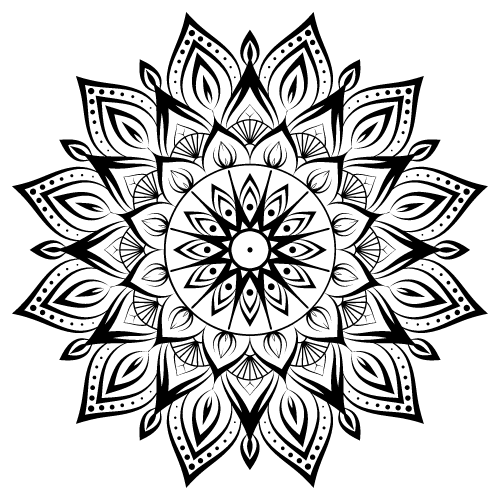The face of the moon was in shadow
In a world increasingly driven by artificial intelligence, luxury brands are at a defining crossroads—adapt or become irrelevant. As the couple founders of Kiyana Diamonds, our journey has been anything but conventional. He began as a software engineer, evolved into a data scientist and banker, and finally followed a long-standing fascination with jewelry and the tech behind it. She, with a background in the financial sector, is also a gifted jewelry designer and artist. Together, we’ve combined our expertise in technology, art, finance, and craftsmanship to build a diamond jewelry brand that is deeply rooted in trust, authenticity, and emotion.
But today, the AI wave is changing everything—from how brands engage customers to how trust is built in high-involvement purchases like diamonds. So what does this mean for us, and for the larger world of luxury?
The Dual-Edged Sword: AI in Luxury
The Best of AI for Luxury Brands
1. Hyper-Personalization at Scale
Luxury is about personal touch. AI allows us to scale that touch. Using data from browsing patterns, purchase history, or even visual preferences, AI tools can:
- Recommend custom ring settings or stone cuts.
- Curate collections for specific life events like weddings or anniversaries.
- Offer real-time virtual try-ons using AR + AI fusion.
Stat Insight: According to a 2024 McKinsey report, brands using AI for personalization report a 10–30% increase in conversion rates and up to 40% higher customer retention.
2. Design Innovation
With her design genius and his AI background, we’ve been exploring generative design. AI tools can take design cues from heritage art, customer inputs, and global fashion trends to ideate dozens of viable design sketches within minutes. These become starting points for human designers to refine—a perfect man-machine collaboration.
3. Supply Chain & Inventory Intelligence
AI-powered forecasting tools allow us to better plan diamond procurement, production schedules, and even predict festive season surges. This reduces waste and enhances sustainability—something luxury consumers care deeply about today.
The Challenges & Cautions
1. Luxury ≠ Mass Automation
The essence of luxury lies in rarity and human touch. Over-automation can dilute the soul of a brand. Customers buying a ₹2 lakh engagement ring don’t want a chatbot—they want a human who understands the emotional weight behind that ring.
2. Algorithmic Bias & Misalignment
AI is only as good as the data behind it. Relying on global data can lead to recommendations that don’t fit Indian tastes—say promoting platinum-heavy edgy designs in a market that prefers traditional yellow gold with diamonds.
3. Privacy & Data Sensitivity
Indian consumers are becoming more privacy-aware. Collecting data to power personalization must be transparent and respectful. Misuse or overuse can break trust.
The Trust Factor in Jewelry — and How AI Can Help
If there’s one absolute truth in the jewelry business, it’s this: TRUST is everything.
- "Is this diamond real?"
- "Am I getting what I’m paying for?"
- "Will this look good on me?"
1. AI-Powered Gem Authentication
Emerging tools use computer vision and machine learning to grade diamonds and detect lab-grown vs. natural stones with greater accuracy. AI-driven grading consistency is sometimes better than human experts (especially in bulk sorting).
At Kiyana Diamonds, we plan to integrate these checks with our sourcing partners to ensure every gem meets the highest global standards.
2. Blockchain + AI for Provenance
Luxury brands globally are using blockchain to track the origin of stones and materials. Combine that with AI that validates documentation and pattern matches fraud indicators, and you create unbreakable transparency.
For Kiyana, our long-term roadmap includes digital diamond passports—a QR code that lets you trace your diamond’s origin, grading lab, carat history, and design journey.
3. Visual Confidence with AI Try-Ons
Buying a ring online can be scary. But AI can now map a customer’s hand (via photo) and show how a ring would look—at true-to-life scale, lighting, and finger proportions. This adds confidence to online buying, especially for first-time luxury buyers.
The Indian Luxury Market: Ready for AI?
India’s luxury market is projected to reach $200 billion by 2030 (Bain & Co.). Yet, only ~5% of jewelry sales currently happen online. Why? Lack of trust and touch.
But this is changing:
- Young, digital-savvy millennials are entering their marriage years.
- NRIs are buying online for convenience and legacy.
- Tier-2/3 cities want access to designer pieces without traveling to metros.
AI tools can democratize this access, personalize experience, and maintain the same high-trust standards digitally.
What the Future Looks Like for Kiyana Diamonds
We don’t see AI as a threat to luxury. We see it as a lens to amplify the human.
- Our designs will still be handcrafted.
- Our diamonds will still go through rigorous human quality control.
- But AI will help us predict what you might like.
- Explain why a certain diamond is rare.
- Visualize how it will sparkle on your hand.
- And build trust without a showroom visit.
In a world of mass AI, the real luxury is human authenticity, backed by intelligent technology.
Final Thoughts
Kiyana Diamonds is not just a brand—it’s our life’s work. We believe the future of luxury lies at the intersection of craft and code, emotion and engineering, art and algorithms.
AI isn’t replacing the jeweler’s eye or the customer’s emotion. It’s becoming a trusted assistant in their journey. And as long as we use it ethically, respectfully, and transparently—AI will help us become even more trusted, more personal, and more luxurious.
Explore our latest AI-inspired and artist-crafted collections at https://www.kiyanadiamonds.com


